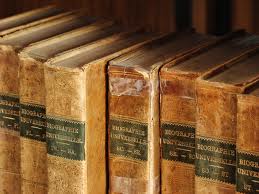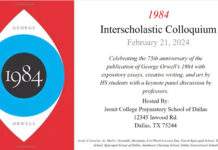The American College Testing, also known as the ACT, is taken by millions of high school students each year. Like the Standardized Aptitude Test (SAT), the ACT includes an “optional” writing section. However, unlike the SAT, which provides test takers with a broad, overreaching essay question, the ACT presents the test taker with a contemporary issue at hand. The prompts ask students to take a side and support their claim.
The official “Preparing for the ACT” booklet poses a question that is the subject of heated debate among English teachers across the United States. The question follows:
“At some high schools, teachers have considered allowing each student to choose the books that he or she will read for English class rather than requiring all students in class to read the same books. Some teachers support such a policy because they think students will greatly improve their reading skills if they read books they find interesting. Other teachers do not support such a policy because they think that students will learn more by participating in class discussion. In your opinion, should each individual student be allowed to choose the books he or she reads for English class?”
When I came across this question while preparing for the ACT, I really thought that this was an interesting, contemporary question that had logical supporters on both sides. To clear up the debate, I met with three Jesuit English teachers, Dr. Michael Degen, Ms. Melissa Tole, and Mr. Bob Wunderlick, to hear their opinions on the controversial issue.
Initially, I met with Dr. Michael Degen, teacher of both Pre-AP English 2 and AP Literature and Composition. Dr. Degen believes that teachers should choose the reading list, and he began his argument with a quote from Flannery O’Connor:
“If the reading selections are not to the taste of the student that is regrettable. His taste, however, should not be consulted; it is being formed.” The purpose of education is not for it to be by the student; education should be directed by faculty, who know more than the student.
“Faculty and teachers are there to guide and make decisions about a body of knowledge that they think ultimately is going to benefit the student. Those are the decisions that I don’t think are appropriate for students (age) 12, 13, 14, 15, 16…
“So many colleges have given up their core curriculum, and they have created this sort of cafeteria where the students select what courses they take. Students do not gain as deep of an education because a student will select courses that are the easiest.
“I think it is important to read the classics in order to be able to generate the ability to make authentic criticisms of contemporary art.”
Next, I had the opportunity to consult Ms. Melissa Tole on the question at hand. Ms. Tole, who teaches Pre-AP English 1 and English 2 at Jesuit, offered interesting personal insight into the issue during our interview.
“I am really on the fence about [reading lists] because, while I have a commitment to the canon, I believe the most important thing is that people read, in general, and that they engage and find enjoyment in the activity.
It is more important to get more people reading than to have a really stringent attachment to a particular curriculum. If we can raise the percentage of the students who are actually reading, then what is wrong with that?”
In my final interview I had the opportunity to speak with Bob Wunderlick, a Jesuit football coach and long time teacher of English I and English III. Here is what Mr. Wunderlick had to say about the ACT prompt.
“When I was teaching freshmen, I tried to balance good traditional literature with what the kids like. It was always a goal of mine to have students afterwards say ‘that was actually a good book.’
“Now with juniors, the same thoughts are popping into my head. I understand why we read Beowulf, The Canterbury Tales, Great Expectations and Macbeth, but I don’t know if any of those are works of literature that students choose to read on their own. In the big picture, that shouldn’t matter – but it does.
“I think if you can find a combination where, if you are reading four works of literature, then maybe two or three are the classics and one or two are something that fits both categories. I think that the answer is a form of a combination between the two, a balance.”






